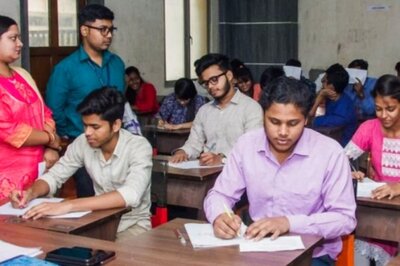
views
ALAPPUZHA: Though the four-member Central team on Sunday completed its study on Japanese Encephalitis (JE), the people are still uncertain about the effectiveness of such studies.It was on Saturday evening that the team led by National Vector Borne Disease Control Programme joint director Dr V K Raina arrived here. The team members said that the situation in Alappuzha is under control.National Centre for Disease Control director Naveen Gupta, Dr Praveen Janwi and Dr Arun Kumar were the members of the team.Since 2006, the state, especially Alappuzha, has been witnessing a disturbing spread of epidemics. And during the five-year period, not less than 15 Central teams have visited the State to control these communicable diseases. Yet no remedy appears to be in sight. According to Directorate of Health Service (DHS), from 2006 to 2010, around 68 JE cases have been reported in the State and six patients died. During the same period, 1,36,948 chikungunya, 10,206 malaria and 6,431 dengue cases have been reported. As many as 60 people died of malaria and dengue since 2006. In October 2006, January 2007, and 2007 June-July, National Institute ofCommunicable Diseases (NICD) team visited Alappuzha, Thiruvananthapuram, Kottayam, Pathanamthitta, Kollam and Ernakulam districts to control the spread of chikungunya. However, they could not make any proper investigation and suggest remedies for a permanent solution.A team from the Centre for Research in Medical Entomology (CRME), Madurai, National Institute of Virology (NIV), Pune, National Vector Born Dieses Control Programme (NVBDCP), Delhi, Defence Department had also visited Alappuzha, Kottayam, Pathanamthitta, Kollam and Ernakulam districts to carry out chikungunya outbreak investigation in 2007 June and July and June 2009. But they too had failed to do any steps to control chikungunya.“In June 2009, Central medical team from National Centre for Disease Control, Delhi, National Institute of Cholera and Enteric Diseases and Ram Manohar Lohya Hospital, Delhi, visited Kuttanad to conduct Cholera outbreak investigation.However, still Kuttanad is cholera-prone area” say Medical experts here.In August 2009, NVBDCP had visited Kozhikode to investigate into the problem of chikungunya, and in May 2011, Centre for Research in Medical Entomology (CRME), Madurai, and Vector Control Research Centre, Puduchery, conducted a visit to control the spread of JE. In addition to this, National Centre for Disease Control Kerala bureaus in Kozhikode andCherthala, Kerala State Health Department, Medical College, Rajiv Gandhi Centre for Biotechnology, have also done many outbreak investigations in the state especially in Alappuzha with an intention to control communicable diseases.


















Comments
0 comment